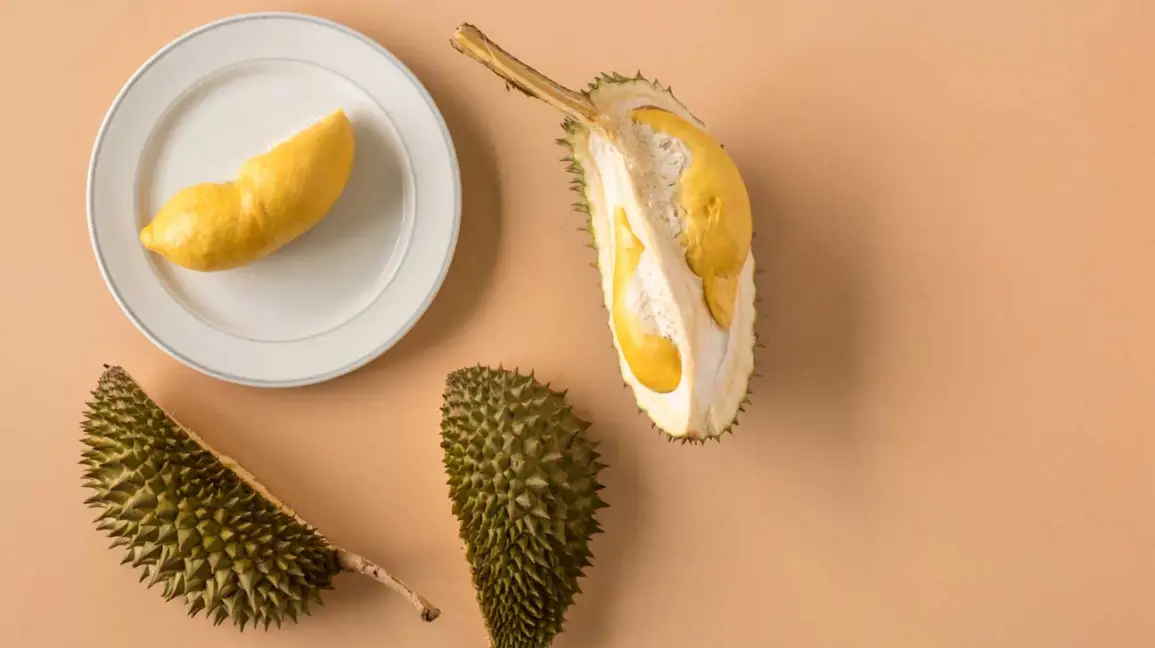Introduction to Durian Fruit
Step into the fascinating world of durian fruit, where its unique aroma sparks intense reactions from delight to disgust. Known as the “king of fruits” in Southeast Asia, durian has a reputation that precedes it – all thanks to its infamous smell. Let’s dive deeper into what makes this spiky fruit so polarizing and intriguing!
The Infamous Smell of Durian Fruit
Durian fruit, often hailed as the “king of fruits,” is infamous for its polarizing aroma. Some describe it as a heavenly mix of almonds and custard, while others liken it to sewage or rotten onions. The smell is so potent that in many countries, durians are banned from public transportation and hotels.
The unique scent of durian comes from a complex combination of volatile compounds. These include sulfur-containing chemicals like hydrogen sulfide and ethanethiol, which contribute to its pungent odor profile. Interestingly, these same compounds are found in substances like garlic and skunk spray.
Despite its divisive smell, durian holds significant cultural significance in Southeast Asia, where it is considered a delicacy. In some communities, sharing a durian with friends or family is seen as an act of bonding and celebration.
Whether you love it or loathe it, there’s no denying that the smell of durian evokes strong reactions wherever it goes – making this tropical fruit genuinely one-of-a-kind.
The Chemical Composition of Durian’s Aroma
Have you ever wondered what gives the durian fruit its notorious smell? Well, it all comes down to chemistry. Durian’s aroma is a complex mix of compounds that create its unique scent profile. One of the key chemicals responsible for this distinct odor is volatile sulfur compounds. These compounds are known for their pungent and strong-smelling characteristics.
In addition to sulfur compounds, durians also contain esters, ketones, and aldehydes that contribute to its overall fragrance. These organic molecules interact with our olfactory receptors in a way that can be polarizing – you either love it or hate it! Some describe the aroma as sweet and creamy, while others find it overpowering and reminiscent of rotten onions.
The combination of these various chemical components results in the divisive smell that has earned durian the title of “the king of fruits.” Love it or loathe it, there’s no denying that durian’s aroma is truly one-of-a-kind.
Cultural Significance of Durian Fruit Smell
The pungent aroma of the durian fruit holds a special place in various cultures across Southeast Asia. In countries like Thailand, Malaysia, and Indonesia, durian is not just a fruit but a cultural icon with deep-rooted significance.
For many locals, the unique smell of durian evokes feelings of nostalgia and homecoming. It is often associated with gatherings of family and friends, where sharing this divisive fruit becomes a bonding experience.
In some societies, offering someone a piece of durian is seen as a gesture of goodwill and hospitality. The strong odor may be off-putting to some, but for others, it symbolizes generosity and warmth.
Durian also plays a role in traditional ceremonies and rituals. From weddings to festivals, this spiky fruit makes its presence known through both its taste and fragrance.
The cultural importance of the durian’s smell goes beyond just being an acquired taste; it represents tradition, community ties, and shared experiences that are cherished by many in the region.
How to Prepare and Eat Durian Fruit
One of the most important steps in preparing durian fruit is choosing a ripe one. Look for a fruit with spikes that are starting to crack open, indicating ripeness. To open it, use a sharp knife to make an incision along the seams of the fruit. Be cautious, as it can be tricky due to its thorny exterior.
Once you’ve managed to crack it open, you’ll be greeted by custard-like flesh encasing large seeds inside. Some people prefer using gloves at this stage because durian’s aroma tends to linger on your hands long after handling it. The creamy texture and unique flavor of the flesh make it worth overcoming any initial aversion.
When eating durian, take small bites at first to acclimate yourself to its potent taste and smell. Some describe it as a mix of sweet, savory, and slightly alcoholic flavors – truly unlike anything else. Remember that patience is key when acquiring a taste for this polarizing fruit; give it time before forming an opinion!
Alternatives for Those Who Can’t Handle the Smell
For those who find the smell of durian fruit overpowering, fear not! There are alternatives to still enjoy the unique taste without having to endure the intense aroma. One option is to try frozen durian, as freezing can help tone down the smell while maintaining the flavor.
Another alternative is to opt for durian-flavored products like candies, cakes, or ice cream. These treats often have a milder scent compared to fresh durian but still offer that distinct taste loved by many.
If you’re open to experimenting, incorporating small amounts of durian in smoothies or desserts with strong flavors like chocolate or coffee can help mask the smell while adding a hint of its creamy texture.
Conclusion
In the end, the unique smell of durian fruit may be a divisive topic, but its reputation as the “king of fruits” remains unchallenged. Whether you love it or can’t stand it, there’s no denying that this spiky fruit from Southeast Asia is an experience like no other. So, if you ever get the chance to try durian, hold your nose (if you must) and dive in for a taste sensation that transcends its pungent aroma. Embrace the adventure and savor every moment – after all, life is too short to miss out on such exotic delights!







